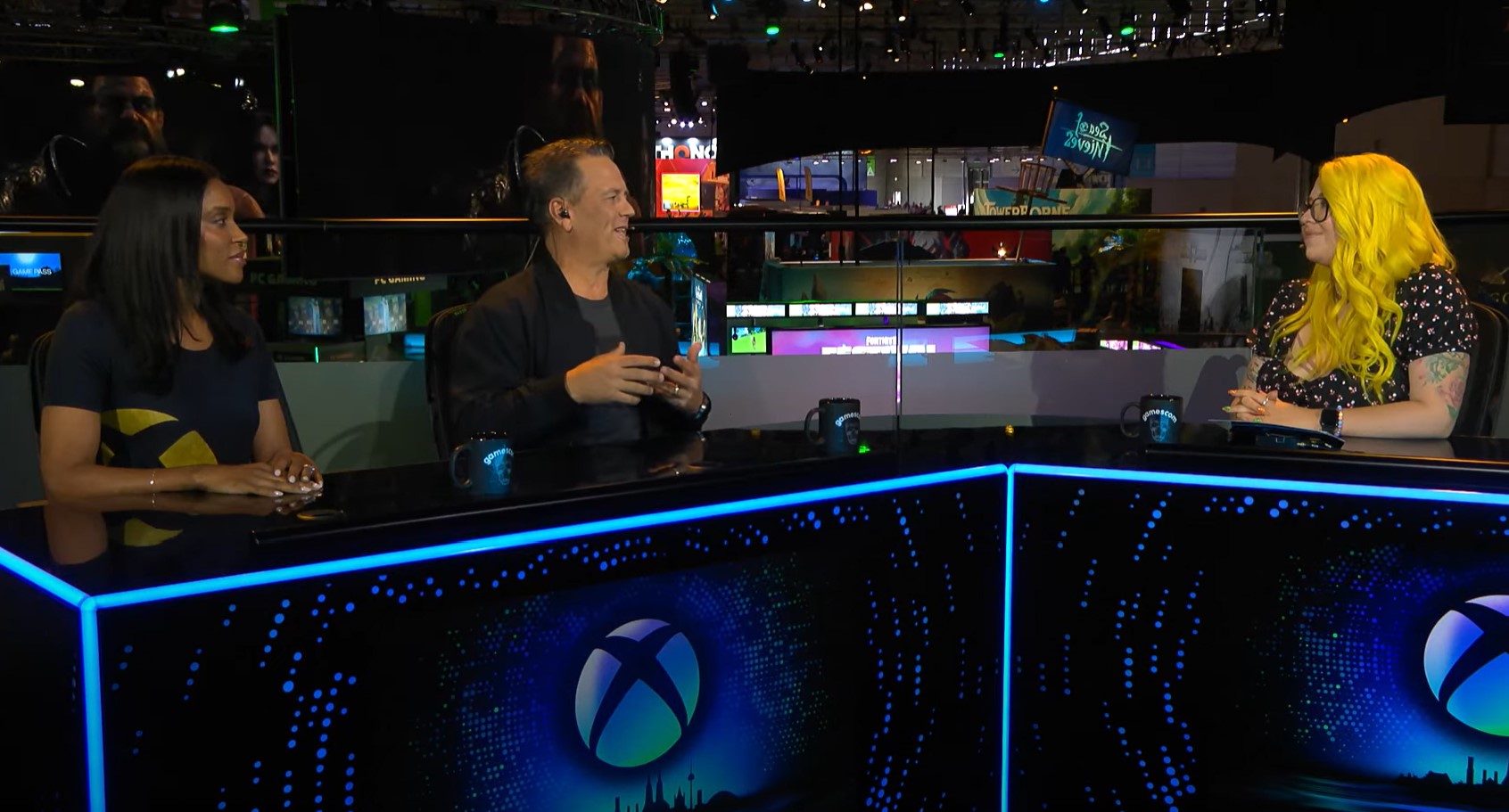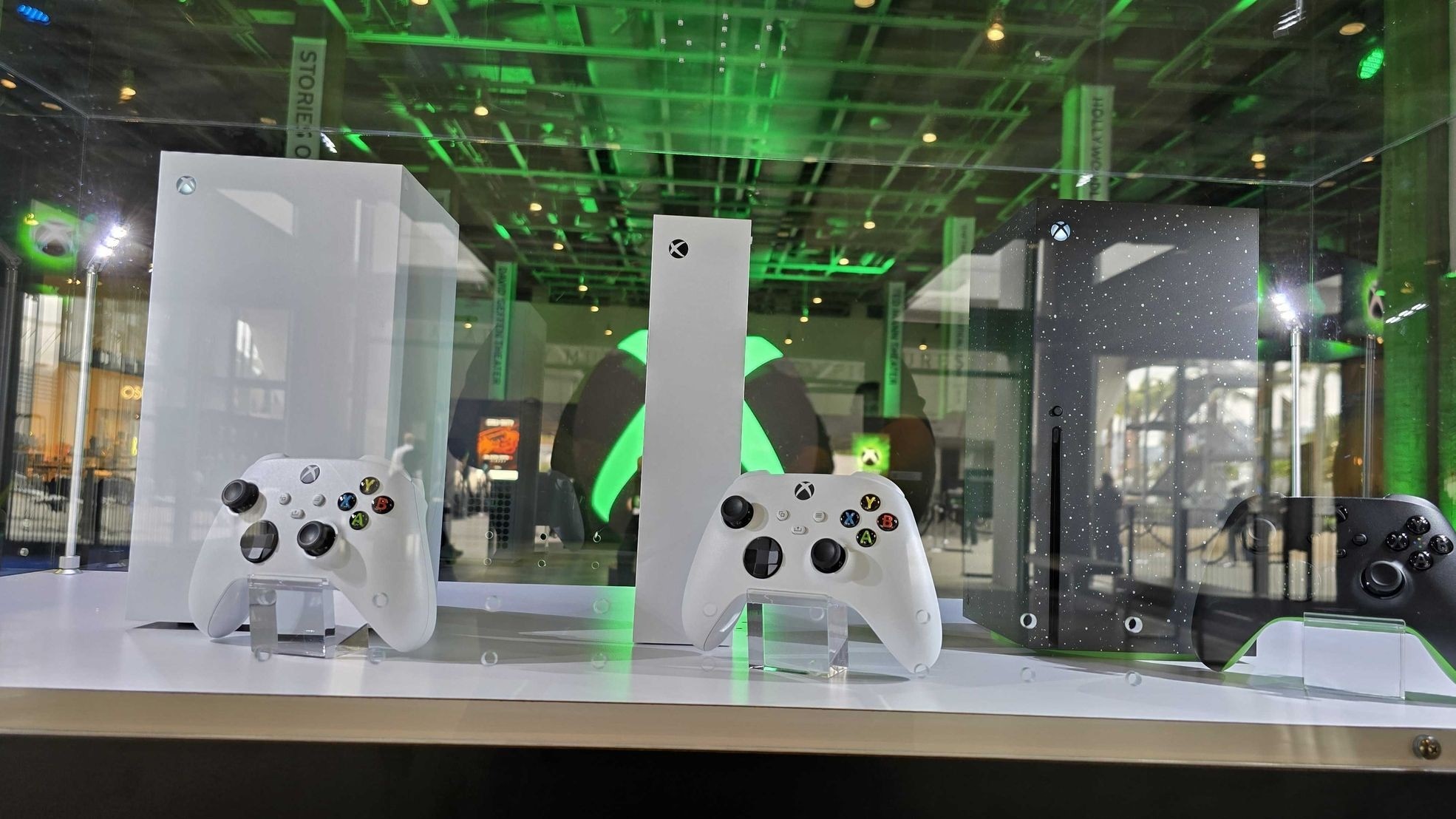
As someone who has been following the gaming industry for over two decades, I must admit, I’m finding myself increasingly perplexed by Microsoft’s recent moves. Growing up, Xbox was my go-to console, a beacon of innovation and exclusivity that set it apart from the competition. However, lately, it seems like the pendulum has swung in the opposite direction.
It should be a celebration of Xbox’s massive upcoming games list, but instead the discussion is once again focusing on Microsoft’s overarching strategy.
Many Xbox fans are angry right now over the direction of the brand. Microsoft has put an increasing emphasis on platforms beyond Xbox console, focusing engineering efforts on fixing their PC offering, and repurposing Xbox console stock into cloud servers for their Xbox Cloud Gaming push. Since Microsoft’s bungled 2013 Xbox One messaging, it has felt like Xbox has been on the backfoot, switching strategies on a regular basis to accommodate a variety of predicted game industry trends — with said predictions not always panning out. A lack of transparency over Microsoft’s Xbox strategy has led to a generalized sense of confusion, culminating in diminished trust.
Xbox enthusiasts are brainstorming their own interpretations about Microsoft’s recent strategies, which appear to involve making some of its flagship exclusive games like Sea of Thieves available on the main competitor console, PlayStation 5. The basic assumption is that with fewer exclusive Xbox games, there are fewer incentives for consumers to purchase an Xbox console. Since both Xbox Series X and PS5 offer comparable performance, why choose the console with a limited library of games? This predicament could lead to lower sales of Xbox Series X|S, reducing the appeal for developers to support Xbox. Games like Black Myth Wukong, which has gained significant popularity on Steam, have opted for PlayStation 5 over Xbox, as an example. Similarly, Baldur’s Gate 3 prioritized PS5 over Xbox last year. Fear arises that the trend of Xbox being less favored will worsen with declining console sales. The arrival of Genshin Impact on Xbox in November is exciting — but it’s years behind schedule. In fact, Microsoft acknowledged during a quarterly earnings call that Xbox hardware sales have dropped by more than 40% compared to the previous year.
Despite all the gloom on social media, Xbox CEO Phil Spencer outlined some of the thinking behind Microsoft’s current strategy, and why ultimately, you shouldn’t expect Xbox to change course any time soon.
The latest pessimistic outlook concerning Xbox arises from the title Indiana Jones and the Great Circle, developed by MachineGames, a subsidiary of Xbox. Recently announced as an exclusive for Xbox and Windows, there’s been chatter that this exclusivity won’t last long. This ongoing pattern of unfulfilled promises and expectations has led some to question the credibility of Xbox’s statements, which might explain why certain audiences may be indifferent to comments made by CEO Phil Spencer today.
In a new interview with Xbox On (a Microsoft owned channel), Xbox CEO Phil Spencer discussed the firm’s multiplatform strategy, and ultimately why you should expect even more games to hit PS5 in the future.
As a long-time fan of Indiana Jones, I must say that I am thoroughly impressed with MachineGames’ work on the franchise. From my perspective, their dedication to quality gameplay and storytelling shines through in every aspect of the games they produce. Last spring, we were treated to four new games, two of which were released on Nintendo Switch and the other two on PlayStation. It was clear that the team was committed to learning from their experiences and growing as developers. At the June Xbox Showcase, they announced plans to continue building upon their successes and further strengthening their franchises. As someone who has followed this series for many years, I can confidently say that I am excited to see what the future holds for Indiana Jones under MachineGames’ guidance.
It appears that Sea of Thieves has surpassed 1 million sales on PlayStation since its release, and it’s likely that number is even higher today. Given the game costs $40, this means around $40 million in extra revenue for Rare to expand the game. One might question whether this income offsets any negative impact on Xbox’s brand. However, as Microsoft CEO Satya Nadella has suggested to investors, there seems to be minimal effect on the overall growth of Xbox One and Xbox Series X|S console users at this point in time.

As a tech enthusiast, I proudly declare that the player base for our Xbox console has never been stronger this year. This growth in numbers not only confirms the enduring popularity of our platform but also underscores the resilience and strength of our gaming franchises. At Microsoft, we’re always striving to deliver top-notch performance, and the support we receive from the company empowers us to continuously push boundaries. This success motivates us to continually enhance the quality of our games. Our platform is thriving on console, PC, and cloud, and this strategy seems to be paying off handsomely for us.
It’s undeniably accurate that the number of “console” gamers hasn’t expanded for quite some time, consistently hovering around 250 million. This stagnation has led to a significant shift in the gaming industry, with many players abandoning their individual launch platforms and rejoining Steam on PC, as seen with companies like EA. Even PlayStation has started releasing its games on Windows PC to attract new users. Due to rising costs, we’ve also observed an increase in microtransactions, higher prices, and strategies like these becoming more common.
In essence, I want to emphasize that in our field, there’s a significant amount of stress due to the competitive nature and desire for growth. As enthusiasts of gaming, we need to understand that this industry is dynamic, and long-standing methods of game creation and distribution are evolving. This transformation affects everyone, including us. Our primary goal should be creating superior games accessible to a larger audience. If our focus strays from this, we’re veering off course. For us, the wellbeing of Xbox, our platform, and expanding our gaming library are paramount.
When you take something away, you have to give something back

In simpler terms, I’m saying that many people, including myself, didn’t believe the Xbox Spring business update when it mentioned only four games. We had a strong feeling that Indiana Jones would be announced this week. Last week, I dropped some hints about Indiana Jones and the Great Circle being the game I was receiving whispers about, but I wanted concrete proof before writing a comprehensive report. It seemed unusual given Microsoft’s past efforts to secure exclusivity for the game, as revealed in their court case with the FTC last year. However, it turns out that our suspicions were correct, and most dedicated fans had expected this reveal.
What I suppose they didn’t expect was the way Microsoft framed it at their Gamescom event. Announced as a “one more thing” hype beat after showcasing the game itself (which looks fantastic by the way), Microsoft revealed Indiana Jones’ is coming to PlayStation 5 in the spring. Now, nobody is talking about the game itself, they’re all just talking about the implications for Xbox’s strategy, and what game will go next to PlayStation.
Essentially, the anticipation and buzz that Microsoft generated with its Xbox backward compatibility program, where fans wondered which Xbox 360 games would become available on Xbox One and Xbox Series X|S, was like fuel for Xbox. This excitement significantly boosted Xbox’s momentum. Contrastingly, nowadays, the community is speculating when popular games such as Forza, Starfield, or Halo might appear on PlayStation, which seems to be eroding the genuine worth of the Xbox platform.
In essence, continuously presenting negative news in quick succession about the Xbox product is a prime example of poor marketing strategy. This constant stream of unfavorable Xbox updates is eroding the goodwill that Xbox worked tirelessly to regain after the 2013 DRM debacle, and it’s even threatening their strongest asset: their community. This negative portrayal is overshadowing discussions about its game line-up, undermining developers under the Xbox banner, and disappointing fans who have remained loyal to the platform throughout a decade of unwavering faith.
It’s evident that the Xbox console seems to be at the bottom of Microsoft’s focus list now that they’ve improved their game delivery system. However, if Microsoft continues to diminish the reasons for owning an Xbox compared to other platforms, it may be necessary for them to find ways to compensate their console users. Unfortunately, I can’t help but feel that such improvements might not materialize.
Read More
- PI PREDICTION. PI cryptocurrency
- WCT PREDICTION. WCT cryptocurrency
- How to Get to Frostcrag Spire in Oblivion Remastered
- ANKR PREDICTION. ANKR cryptocurrency
- Quick Guide: Finding Garlic in Oblivion Remastered
- This School Girl Street Fighter 6 Anime Could Be the Hottest New Series of the Year
- Isabella Strahan Shares Health Journey Update After Finishing Chemo
- DOOM: The Dark Ages Debuts on Top of Weekly Retail UK Charts
- Badminton’s Huang Yaqiong Wins Olympic Gold Moments Before Engagement
- 2 Astronauts Stuck in Space After 8-Day Mission Goes Awry
2024-08-21 21:12